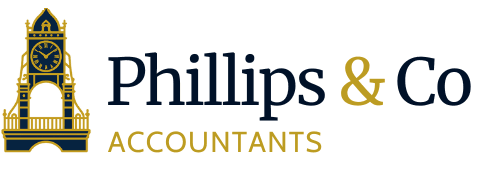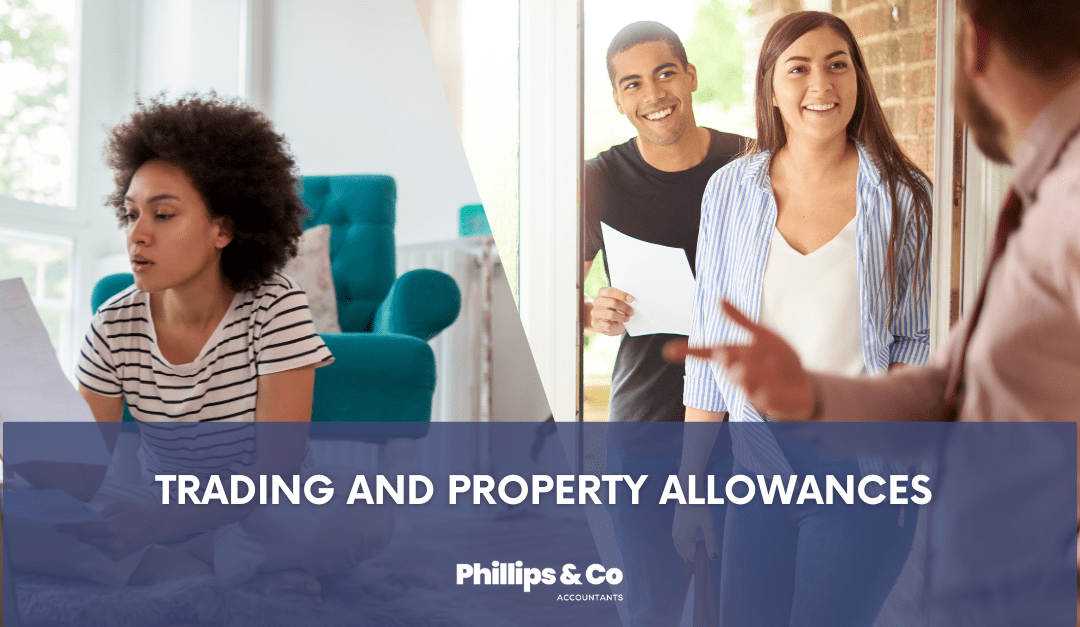Accountants Chester – Tax Tip No. 72
Valuable Tax Reliefs for Small Businesses and Property Owners
With the 2023/24 tax year now over, individuals and businesses in Chester are presented with notable opportunities for tax relief, specifically the Trading Allowance and Property Allowance. These allowances, both set at £1,000 annually, enable qualifying individuals to earn income from trading activities or property rentals without incurring tax liabilities on that amount.
Trading Allowance for Entrepreneurs and Freelancers
This relief is particularly advantageous for:
- Sole traders in Chester operating on a small scale.
- Freelancers supplementing their primary income.
- Individuals with occasional self-employed earnings.
By eliminating the need to register as self-employed with HMRC or complete complex tax forms, the Trading Allowance significantly simplifies tax compliance for those with minimal trading income.
Property Allowance for Landlords
Similarly, the Property Allowance caters to:
- Buy-to-let landlords with single or multiple properties.
- Individuals renting out rooms in their primary residence.
- Property owners generating income through holiday lets or other short-term rentals.
This allowance streamlines tax reporting for landlords, especially those with modest rental income.
Navigating Income Beyond the Allowances
Should income exceed £1,000 for either allowance, individuals can choose to:
- Utilize the Allowance: Claim the full £1,000 tax-free amount and declare only the excess income.
- Claim Expenses: Deduct allowable expenses to potentially reduce taxable income further.
Selecting the most beneficial approach depends on individual circumstances and expense levels.
Expert Tax Advice in Chester
Understanding and maximizing these allowances can be complex. For personalized guidance and expert advice on optimizing your tax position, consult with qualified Accountants Chester. Our team at Accountants Chester possesses in-depth knowledge of UK tax laws and can provide tailored solutions to meet your specific needs.
Accountants Chester: Tax-Free Allowance FAQ’S
Understanding the £1,000 Tax-Free Benefits
Whether you’re a landlord or have a side hustle, the UK government offers generous tax breaks through trading and property allowances. These allowances let you earn up to £1,000 tax-free each year from either property income or trading income – or even both! Understanding how these allowances work is key to minimising your tax burden and maximising your earnings.
What is the trading allowance in the UK?
Trading allowance in the UK for the 2024/25 tax year
For the 2024/25 tax year, the trading allowance in the UK remains at £1,000. This means if your total trading income is under £1,000, you don't need to declare it or pay tax on it. If your income exceeds this amount, you can either deduct the £1,000 allowance or calculate your actual expenses instead.
It's important to note that this is a simplification and individual circumstances may vary. For personalized advice on whether the trading allowance applies to you and how to make the most of tax reliefs, consulting a qualified professional such as Accountants Chester is highly recommended.
A Chester tax FAQ by Accountants Chester | Phillips & Co | Accountancy & Tax.
What is the HMRC £1,000 trading allowance?
For the 2024/25 UK tax year, the HMRC trading allowance is £1,000. This means if your total income from self-employment or casual work is £1,000 or less, you don't need to pay tax on it or inform HMRC.
Important points to note:
- Registration: Even if your income is below £1,000, you still need to register as self-employed with HMRC if your trading income is more than £1,000.
- Taxable income: If your trading income exceeds £1,000, only the amount over the allowance is subject to tax.
- Expenses: You can deduct allowable expenses from your trading income before applying the allowance.
Seeking professional advice:
It's always advisable to consult with qualified Accountants Chester for personalized guidance on tax matters, especially if your trading income is above the allowance or if you have complex tax affairs.
A Chester tax FAQ by Accountants Chester | Phillips & Co | Accountancy & Tax.
What is 1000 property allowance?
In the 2024/25 tax year, the UK government offers a £1,000 property allowance to individuals with income from letting out property. This allowance can be deducted from your gross rental income, reducing your taxable rental profit by up to £1,000.
If your gross rental income is £1,000 or less, you may not need to inform HMRC or declare this income on your tax return. However, there are specific circumstances where you may still need to report your income.
Accountants Chester can provide expert advice on whether you qualify for this allowance and how to claim it correctly. They can also help you understand the specific rules and regulations surrounding property income and ensure you are compliant with tax laws.
A Chester tax FAQ by Accountants Chester | Phillips & Co | Accountancy & Tax.
How to claim 1000 trading allowance?
If your total trading income from all sources is £1,000 or less, you don't need to tell HMRC or pay tax on it. This is known as the trading allowance.
If your income is more than £1,000, you have two options:
Claim the £1,000 allowance: Deduct £1,000 from your trading income before calculating your tax. This is the simplest option but may not be the most beneficial if your expenses are high.
Deduct your actual allowable expenses: Keep records of all your business expenses and deduct them from your income. This could result in lower taxes if your expenses exceed £1,000.
Important Note: If your total income (including trading and any other income) is above your Personal Allowance and exceeds the £1,000 trading allowance threshold, you'll need to register for Self Assessment and file a tax return.
Accountants Chester can help: If you're unsure which option is best for you or need help with your Self Assessment, it's recommended to seek professional advice. Accountants Chester can guide you through the process, ensuring you claim the correct allowances and pay the right amount of tax.
A Chester tax FAQ by Accountants Chester | Phillips & Co | Accountancy & Tax.
How do I claim the 1000 property allowance?
If your rental income is £1,000 or less, you don't need to do anything. The property allowance is applied automatically, and you won't pay tax on this income.
If your rental income is more than £1,000, you can choose to either:
- Claim the £1,000 property allowance: This will reduce your taxable rental profits.
- Deduct your actual allowable expenses: This is the usual way of calculating taxable rental profits.
Which option is best for you?
- If your expenses are low, claiming the property allowance might be more beneficial.
- If your expenses are high, deducting them might be better.
How to claim the property allowance
You claim the property allowance on your Self Assessment tax return. You'll need to declare your rental income and then deduct the £1,000 allowance.
Need help?
If you're unsure which option is best for you or need help with your tax return, consider contacting a qualified accountant, such as accountants Chester, for expert advice. They can help you make the most of your allowances and ensure you're paying the right amount of tax.
A Chester tax FAQ by Accountants Chester | Phillips & Co | Accountancy & Tax.
Who cannot claim property allowance?
People who cannot claim property allowance for the 2024/25 tax year UK according to Accountants Chester:
- Those with property income exceeding £1,000: The property allowance only applies to income up to £1,000.
- Those claiming the Rent-a-Room relief: This scheme has its own tax benefits.
- Those claiming deductions for property expenses: You cannot claim both the allowance and expense deductions.
- Those with income from a partnership, employer, or close company: This allowance is for individual property owners only.
It's always recommended to consult with qualified Accountants Chester or your local area to ensure you're claiming all the property tax allowances you're entitled to.
A Chester tax FAQ by Accountants Chester | Phillips & Co | Accountancy & Tax.
What is the HMRC 1000 allowance?
For the 2024/25 tax year in the UK, there are a couple of tax-free allowances that were previously set at £1,000:
- Property Allowance: If you earn up to £1,000 from renting out a property, you don't have to pay tax on this income.
- Trading Allowance: If you have income from self-employment or casual services and it's under £1,000, you won't be taxed.
Accountants Chester can help you determine if you are eligible for these allowances and provide further advice on your tax situation.
It's important to note that the Personal Savings Allowance has replaced a previous £1,000 allowance for savings interest. It now allows basic-rate taxpayers to earn up to £1,000 in interest tax-free. Higher-rate taxpayers can earn £500 tax-free, and additional-rate taxpayers don't receive an allowance.
A Chester tax FAQ by Accountants Chester | Phillips & Co | Accountancy & Tax.
How does the 1000 trading allowance work?
The £1,000 trading allowance means you can earn up to this amount from self-employment or casual income in the 2024/25 tax year without needing to report it to HMRC or pay tax on it. It's a great way to test the waters with a new business idea or earn extra income from a hobby. However, it's important to understand it applies to your total income from these sources, not each individual source.
If your earnings exceed £1,000, you'll need to register as self-employed with HMRC and file a Self Assessment tax return, even if your expenses bring your profits below this threshold. Accountants Chester can help you navigate this process and ensure you're claiming all eligible expenses to minimize your tax liability.
It's also crucial to distinguish between income (total earnings before expenses) and profit (earnings after expenses). The trading allowance applies to your gross income, not your profit.
A Chester tax FAQ by Accountants Chester | Phillips & Co | Accountancy & Tax.
What are the exclusions from the property allowance?
The property allowance is a valuable tax relief in the UK, but it's not applicable in all situations. Some common exclusions include:
- Furnished holiday lettings: If your property is primarily used as a furnished holiday let, you won't be eligible for the property allowance.
- Income from a business: If your property income is generated through a business (e.g., a bed and breakfast), the property allowance doesn't apply.
- Property jointly owned with a business partner: If you co-own a property with a business partner and the income is considered business income, you can't claim the allowance.
It's crucial to understand these exclusions to determine if you qualify for the property allowance. For personalized advice on property tax matters and to ensure you're claiming all eligible allowances, consult with accountants in Chester.
A Chester tax FAQ by Accountants Chester | Phillips & Co | Accountancy & Tax.
Can joint owners claim property allowance?
Absolutely! Joint owners of properties in the UK can claim property allowance for the 2024/25 tax year. Each owner is entitled to the £1,000 allowance against their individual share of the gross rental income.
For example, if a property generates £20,000 in gross rental income and is owned by two people, each owner can deduct £1,000 from their £10,000 share of the income.
Understanding the intricacies of property tax can be complex, but Accountants Chester are well-versed in these regulations and can guide you through the process, ensuring you claim the full amount of property allowance you're entitled to.
A Chester tax FAQ by Accountants Chester | Phillips & Co | Accountancy & Tax.
Accountants Chester: Boost Your Business with Expert Support!
Get a FREE Consultation & Tailored Accounting Solutions
Call/WhatsApp: +44(1244) 220-062
Disclaimer
The information contained in this blog is for general guidance only. It does not constitute professional advice and should not be relied upon as such. Always seek tailored advice from a qualified accountant regarding your specific circumstances.

